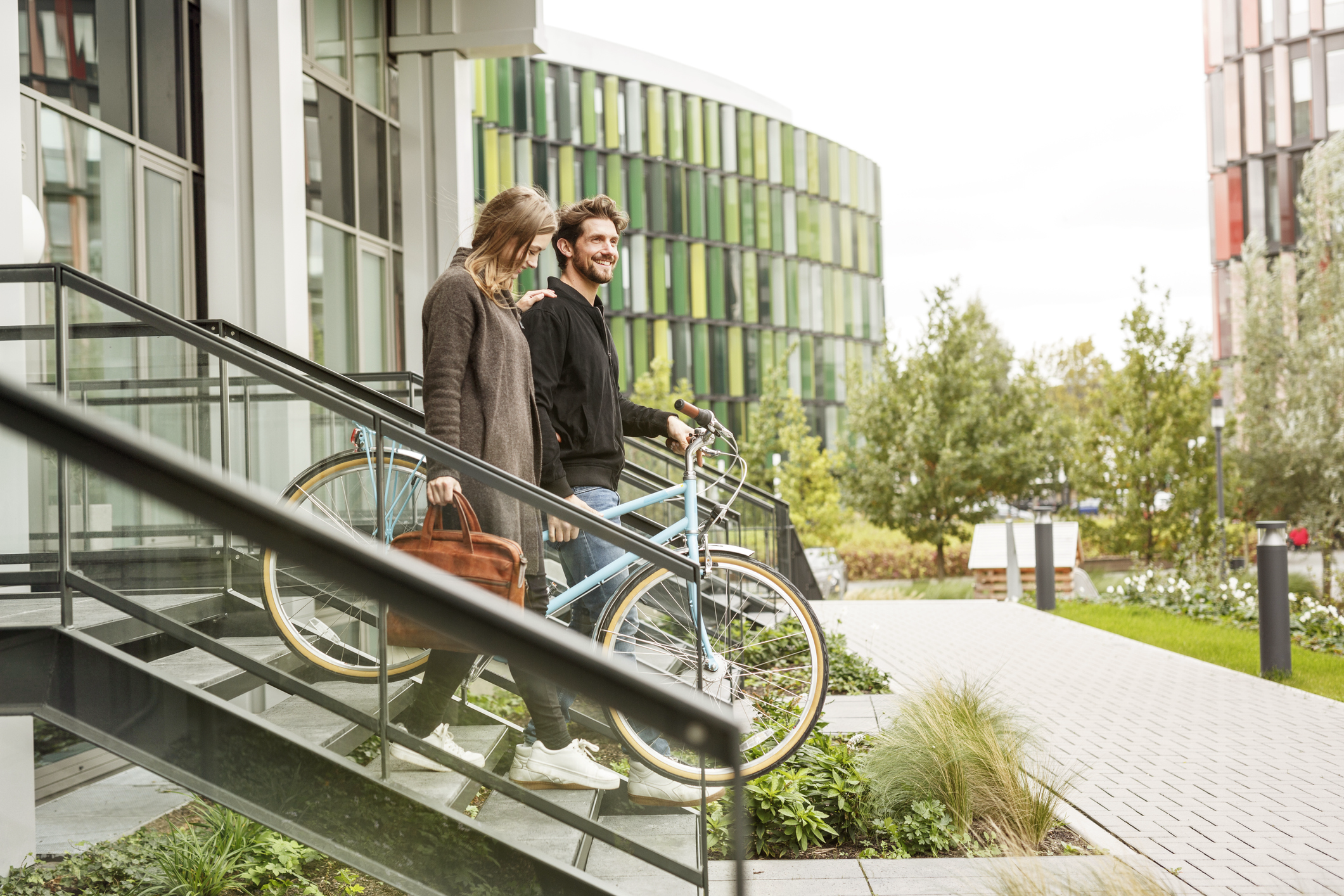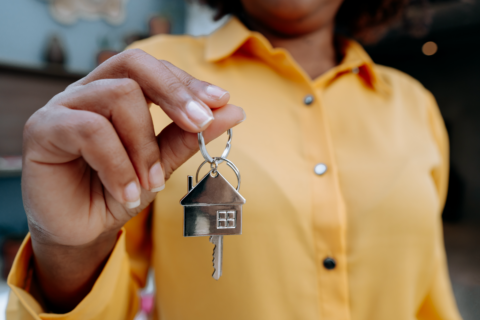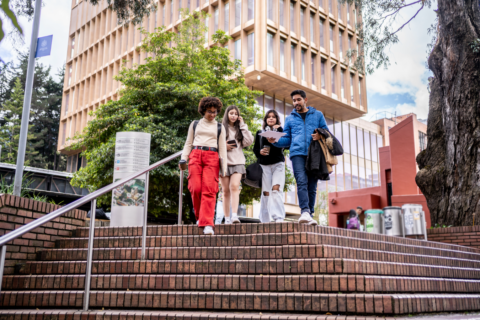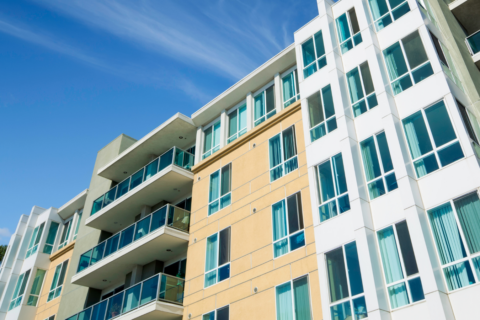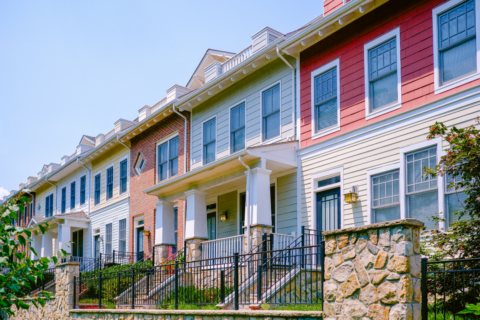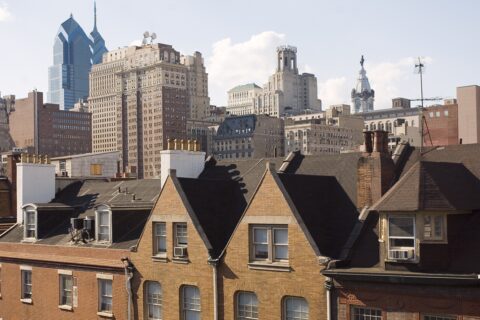From tackling climate change to addressing social equity, municipalities have the power to shape a future where everyone has access to quality, sustainable and healthy homes. The following strategies are described in further detail in NLC’s report, Creating Good, Green Jobs in the Building Sector.
Building Decarbonization Policies
Local governments can lead the charge in reducing the carbon footprint of buildings. By implementing and enforcing building decarbonization policies, such as performance standards and energy benchmarking ordinances, cities create a framework for sustainable and climate-friendly construction. This not only contributes to meeting sustainability goals but also sets the stage for long-term cost savings for residents, since less energy used means lower utility bills.
Denver, CO, passed building performance standards for different classes of existing buildings: over 25,000 square feet, between 5,000 and 25,000 square feet, and under 5,000 square feet. By imposing stricter energy usage reductions on larger buildings, and none on the smallest class of buildings, likely to be single-family residential homes, they are not passing financial burdens onto homeowners. Instead, commercial and apartment building owners must comply with the energy performance standards, passing on energy efficiency savings to their tenants.
Financial Incentives and Support Programs
Making sustainable choices should be available to residents of all income levels. Municipalities can implement financial incentives to encourage property owners to adopt building decarbonization practices. This includes rebates, low-interest loans, or property-assessed clean energy (PACE) programs. It is especially important to tailor and market programs to owners of multifamily homes, so renters experience benefits as well. By easing the financial burden, cities empower individuals and businesses to invest in sustainable, energy-efficient upgrades.
Milwaukee, WI, through its Me2 program, offers a suite of incentives for residential buildings. From loans up to $15,000 for energy efficiency retrofits, to assistance in accessing statewide rebate programs, Milwaukee maximizes savings for homeowners. Me2 requires work to be done by a city certified Me2 contractor. This ensures the quality of the work meets industry standards and selected contractors agree to hire only local workers for the project. Me2 loans can also be used for structural upgrades to make efficiency upgrades possible, a barrier to many home improvement projects, especially in older homes.
Zoning for Sustainability
Zoning codes play a pivotal role in shaping the landscapes of cities, towns and villages. Municipalities can revise zoning regulations to incentivize sustainable building practices. For example, Acton, MA, offered a density bonus in its Zoning Bylaws to new construction or major renovations that met LEED standards. Cities can also encourage residents to install distributed energy to lower their utility bills by streamlining zoning for renewable energy installations, such as rooftop solar panels on residential buildings.
Public-Private Partnerships
Municipalities can leverage the strengths of both the public and private sectors through strategic partnerships. Collaborating with private developers, investors, and non-profit organizations enables local governments to pool resources and expertise. This is also a great opportunity to build workforce development programs together, as private sector technical expertise is often needed to ensure the correct skills and certifications are being taught. Public-private workforce development programs can focus on training sustainable construction practices, as a skilled workforce is essential in building sustainable, healthy, and energy-efficient homes.
Community Engagement and Education
Local governments can actively engage with residents and developers through education programs on sustainable building practices as well as how to take advantage of local, state and federal incentives. Fort Collins, CO has built out a comprehensive green building website, making it easy to find resources for single-family and multifamily homeowners looking to take advantage of incentives and learn more about available technologies.
In working towards sustainable, affordable housing, local governments emerge as leaders for change. By implementing and refining building decarbonization strategies, municipalities can lead their communities toward a greener housing future. From financial incentives to zoning updates and public education, each action contributes to a more sustainable and inclusive housing landscape. It’s time for cities, towns, and villages to embrace their pivotal role in building a sustainable tomorrow.
Dig Deeper
Cities have a critical role to play in decarbonizing buildings. NLC’s Creating Good, Green Jobs in the Building Sector report outlines core strategies and technologies for healthy, clean and decarbonized buildings.
